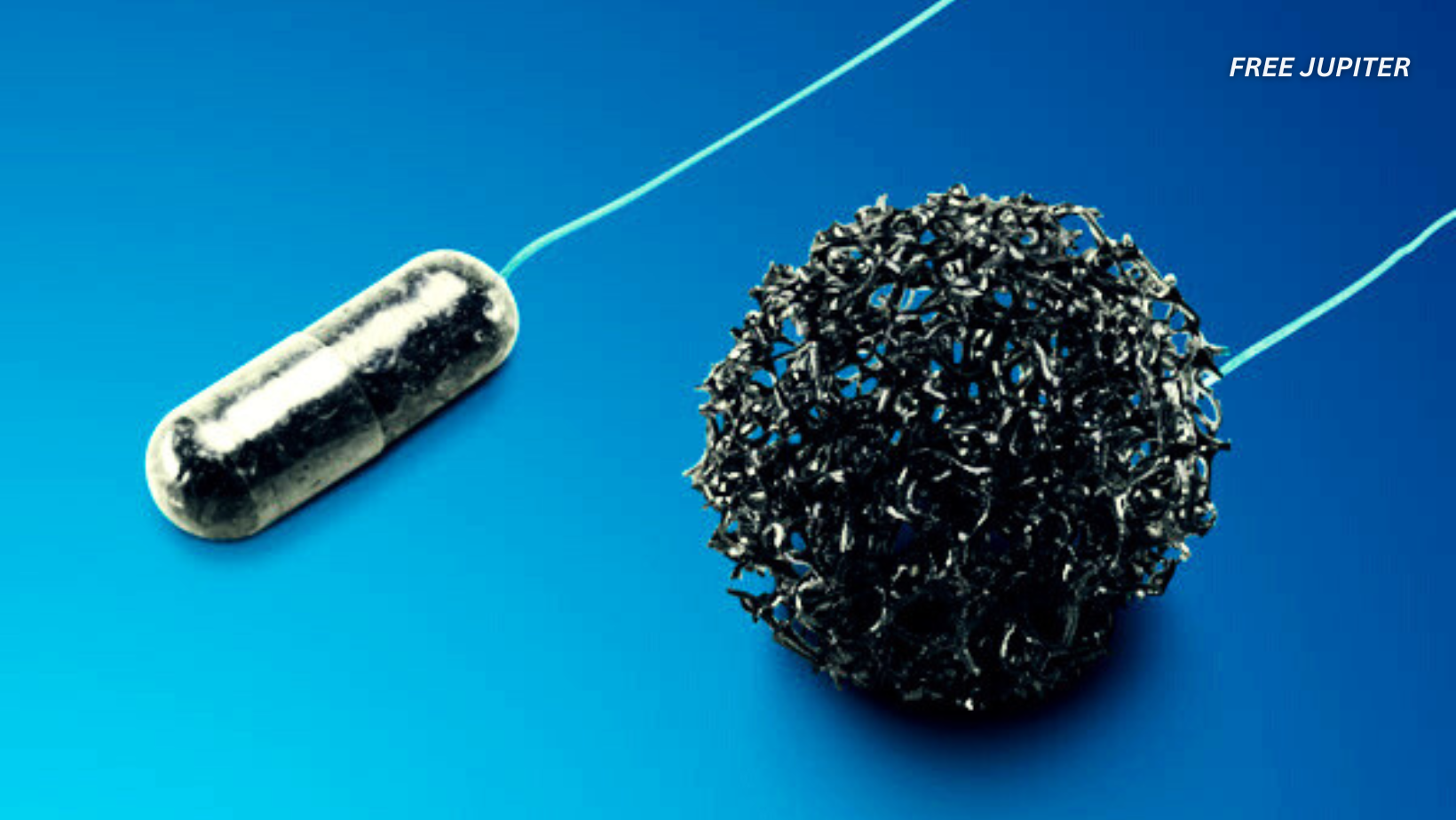Imagine a tiny capsule, no bigger than a vitamin, holding the potential to spot a sneaky disease that often masquerades as nothing more than a stubborn case of heartburn. Over the past two decades, researchers-supported by Cancer Research UK-have been refining a clever device known as the capsule sponge (sometimes playfully dubbed the “pill on a string”). This unassuming invention is now making waves in the early detection of esophageal cancer and its precursor, a condition called Barrett’s esophagus.
Esophageal cancer is notorious for slipping under the radar. Its early warning signs-think indigestion or mild discomfort-are easy to dismiss or confuse with far less serious issues. Because of this, many people only discover they have the disease when it’s already advanced, which makes successful treatment much more challenging. However, when caught early, the outlook is significantly brighter, with about 63% of those diagnosed at the earliest stage living five years or longer.
The Capsule Sponge: How It Works
The capsule sponge is a marvel of simplicity and ingenuity. Here’s the gist: the patient swallows a small capsule that’s attached to a thin string. Once the capsule reaches the stomach, it dissolves, releasing a sponge. After a few minutes, a healthcare professional gently pulls the string, drawing the sponge back up through the esophagus. As it travels, the sponge collects cells from the lining of the esophagus. These cells are then sent off to a laboratory, where pathologists examine them for signs of Barrett’s esophagus or early cancerous changes.
This test doesn’t require sedation, is much less invasive than traditional procedures like a gastroscopy, and can be performed by trained nurses in a community clinic. It’s a quick process, and most people are able to go about their day immediately afterward.
Read more: ‘It’s A Common Theme’: Cancer Doctor Shares What She Regularly Sees In Her Patients Early On
Why the Capsule Sponge Matter
The traditional approach to diagnosing esophageal cancer often relies on endoscopy-a procedure where a flexible tube with a camera is inserted down the throat. While effective, endoscopy is invasive, time-consuming, and requires specialized staff and equipment. It can also be uncomfortable, which may discourage some people from attending their appointments.
The capsule sponge offers a friendlier alternative. Because it’s less daunting and easier to administer outside of a hospital, more people may be willing to get checked. This could lead to earlier detection, fewer missed appointments, and ultimately, better outcomes for patients.
The Pros and Cons: A Balanced Look
Perks of the Capsule Sponge:
- Patient-Friendly: The procedure is quick, doesn’t require sedation, and is less intimidating than a traditional endoscopy.
- Versatile Administration: Nurses and other healthcare professionals can perform the test, not just doctors.
- High Acceptance: Studies report that both patients and clinicians are generally happy with the experience.
- Efficiency Boost: By identifying those at low risk, the capsule sponge can help reduce the number of unnecessary endoscopies, freeing up resources for those who need them most.
- Cost-Effective: Early evaluations suggest that the capsule sponge is more economical than standard care.
Potential Drawbacks:
- Side Effects: Some people experience minor issues like a sore throat, trouble swallowing, or, rarely, the sponge detaching.
- Possible Misses: The test isn’t perfect-Barrett’s esophagus may go undetected in about 19–27% of people who receive a negative result. That means those with persistent symptoms should still be monitored carefully.
- Limited Scope: The capsule sponge is designed for the esophagus, so it won’t catch cancers in the stomach, which can present with similar symptoms.
- Evidence Still Growing: While promising, there’s still limited proof that the capsule sponge improves survival rates or catches cancer significantly earlier than other methods.
Where the Capsule Sponge Fits In
Across the UK, the capsule sponge is being trialed in several scenarios:
- Sorting Patients with Reflux: People with chronic acid reflux waiting for a gastroscopy may be triaged with the capsule sponge to determine who really needs further investigation.
- Monitoring Barrett’s Esophagus: Those already diagnosed with Barrett’s can be monitored for changes using the capsule sponge, potentially reducing the need for repeated endoscopies.
- Proactive Case-Finding: In primary care, the test may be used to screen people at higher risk, such as those with longstanding reflux symptoms.
What’s Next? The Road to Widespread Use
Bringing the capsule sponge into routine practice isn’t as simple as flipping a switch. Several steps are needed to ensure it’s used safely and effectively:
- Ongoing Research: More studies are underway to confirm the benefits and work out the best ways to use the test. Researchers are also comparing different versions of the device to see which performs best.
- Clear Guidelines Needed: Health systems will need clear instructions on how to incorporate the capsule sponge into existing diagnostic pathways.
- Real-World Data: As the test is rolled out more widely, collecting and analyzing data from everyday practice will be crucial to refine its use.
- Training and Infrastructure: Clinics need the right equipment, and staff must be trained to perform the procedure and interpret the results.
In Scotland, the capsule sponge is being introduced across all health boards. England is supporting its adoption through local cancer alliances, though there isn’t yet a nationwide funding stream. Wales and Northern Ireland are still working on their plans for implementation.
Preparing for the Future
For the capsule sponge to make a real difference, health systems should:
- Keep clinicians informed about new diagnostic pathways.
- Update referral forms to include the capsule sponge where available.
- Ensure test results are integrated into electronic health records.
- Equip clinics with the necessary tools and guidance.
- Continue evaluating the intervention to ensure best practices are followed.
Sharing experiences and lessons learned between regions will help smooth the rollout and improve patient care across the board.
Read more: Man Diagnosed With Stage Four Cancer Reveals The Common Symptom He Ignored
The Bigger Picture: Detecting Esophageal Cancer
While the capsule sponge is a promising new tool, it’s worth noting that there are several ways doctors currently investigate possible esophageal cancer. These include:
- Endoscopy: A thin, flexible tube with a camera is used to look directly at the esophagus and take tissue samples if anything looks suspicious.
- Imaging Tests: CT scans, MRI, and PET scans provide detailed pictures of the inside of the body to check for tumors or signs the disease has spread.
- Biopsy: Tissue samples are analyzed in a lab to confirm the presence of abnormal or cancerous cells.
- Other Techniques: Methods like barium swallow X-rays or endoscopic ultrasound can offer additional information about the structure and depth of any abnormal areas.
The capsule sponge doesn’t replace these tests but adds another option-especially for people at higher risk or those needing regular monitoring.
Read more: Risk Of Prostate Cancer Increases By 45% In Men Who Share This Common Practice
Final Thoughts
The capsule sponge may look unremarkable, but its potential is anything but ordinary. By making it easier and less intimidating to check for early signs of esophageal cancer, this tiny device could help tip the balance toward earlier diagnosis and better outcomes. As research continues and health systems adapt, the hope is that fewer people will have their symptoms dismissed as simple indigestion, and more will have a fighting chance at catching this elusive disease before it’s too late.
In the ever-evolving landscape of cancer detection, sometimes the most powerful innovations come in the smallest packages.









